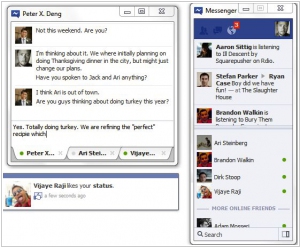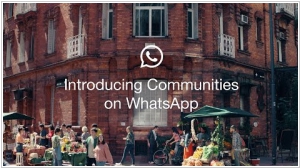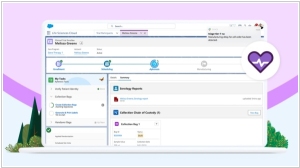Facebook Messenger vs WhatsApp
May 25, 2023 | Author: Adam Levine
27

WhatsApp Messenger is a cross-platform mobile messaging app which allows you to exchange messages without having to pay for SMS. WhatsApp Messenger is available for iPhone, BlackBerry, Android, Windows Phone and Nokia and yes, those phones can all message each other! Because WhatsApp Messenger uses the same internet data plan that you use for email and web browsing, there is no cost to message and stay in touch with your friends.
Facebook Messenger and WhatsApp are both widely used messaging applications, but they have key differences in terms of ownership, user base, and feature set.
Facebook Messenger is owned by Facebook and is integrated with the Facebook social media platform. It offers a range of features including text messaging, voice and video calls, group chats, stickers, media sharing, and various additional features such as games and chatbots. Facebook Messenger is known for its extensive user base and seamless integration with other Facebook services, making it convenient for individuals to connect with friends and family.
WhatsApp, on the other hand, is owned by Facebook as well but operates independently as a messaging platform. It is focused on secure and private communication, offering end-to-end encryption for messages, voice and video calls, group chats, media sharing, and location sharing. WhatsApp has a large user base, especially in international markets, and it is known for its simplicity, reliability, and cross-platform compatibility.
While both Facebook Messenger and WhatsApp provide similar core messaging features, WhatsApp places a stronger emphasis on privacy and security. WhatsApp's end-to-end encryption and privacy-focused features have made it popular among users who prioritize secure communication. On the other hand, Facebook Messenger offers a broader range of features and integration with the Facebook platform, making it more suitable for those who want to connect with a larger network of friends, engage in social activities, and access additional functionalities like games and chatbots.
See also: Top 10 Business Messaging platforms
Facebook Messenger is owned by Facebook and is integrated with the Facebook social media platform. It offers a range of features including text messaging, voice and video calls, group chats, stickers, media sharing, and various additional features such as games and chatbots. Facebook Messenger is known for its extensive user base and seamless integration with other Facebook services, making it convenient for individuals to connect with friends and family.
WhatsApp, on the other hand, is owned by Facebook as well but operates independently as a messaging platform. It is focused on secure and private communication, offering end-to-end encryption for messages, voice and video calls, group chats, media sharing, and location sharing. WhatsApp has a large user base, especially in international markets, and it is known for its simplicity, reliability, and cross-platform compatibility.
While both Facebook Messenger and WhatsApp provide similar core messaging features, WhatsApp places a stronger emphasis on privacy and security. WhatsApp's end-to-end encryption and privacy-focused features have made it popular among users who prioritize secure communication. On the other hand, Facebook Messenger offers a broader range of features and integration with the Facebook platform, making it more suitable for those who want to connect with a larger network of friends, engage in social activities, and access additional functionalities like games and chatbots.
See also: Top 10 Business Messaging platforms
Facebook Messenger vs WhatsApp in our news:
2024. Messenger now lets you create shared albums, send HD photos and share larger files
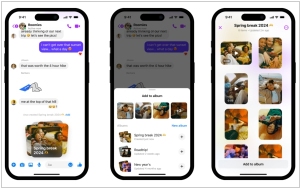
Meta is introducing new features for Messenger users, enabling the creation of shared albums within chats, the transmission of high-definition photos, and the sharing of larger files up to 100MB in size. This update caters to individuals accustomed to sharing albums or HD images via platforms like Google Drive. Previously, users were limited to viewing a list of photos shared in a chat without the ability to organize them; now, they can create albums in group chats, facilitating organization for various occasions such as vacations or family events. To initiate an album, users select multiple photos from the chat composer and tap "create album," or long-press a photo to do so. Additionally, users can add photos to existing albums by selecting the "Add to album" option. Everyone in a chat can view, add, delete, and download pictures and videos within an album, which can be accessed via the "Media" button in the chat interface. This introduction of shared albums fills a gap in Meta's messaging services, as it's not available on platforms like WhatsApp and Instagram DMs, likely making it a welcomed addition for users.
2023. Facebook Messenger is finally adding default end-to-end encryption
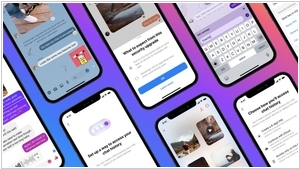
Facebook Messenger is enabling end-to-end encryption as the default setting for all personal messages and calls, marking a significant update along with various other improvements. This development is particularly noteworthy for individuals prioritizing online privacy. While Messenger initially introduced end-to-end encryption as an optional feature in 2016, users were required to actively opt in. After announcing tests for default end-to-end encryption in August, Meta, the parent company, is now poised to roll out this security feature for all users. This means that individual Messenger conversations will be completely private, shielded from unauthorized access, including by Meta itself. The encryption covers both text conversations and video calls, though group chats with more than two participants remain without this added protection, at least for the time being.
2023. WhatsApp launches its native macOS app
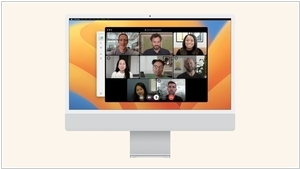
WhatsApp has introduced a new native Mac app, enabling users to engage in video calls with a maximum of eight participants and audio calls with up to 32 individuals. The redesigned app is tailored to Mac users, facilitating increased productivity on larger screens. Notably, users can seamlessly share files through drag-and-drop functionality in chats and access a more extensive chat history. After a period of testing, WhatsApp released the app in public beta earlier this year, making it available to users with Apple Silicon systems and macOS 11 Big Sur or later.
2023. WhatsApp introduces a new Windows client with better calling features
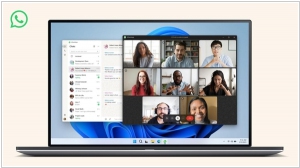
WhatsApp has unveiled an upgraded Windows client that boasts enhanced calling features and improved performance. With the latest version, users can stay connected even when their phone is inactive, thanks to multi-device synchronization. The desktop app now also enables group video calls for up to eight people and audio calls for up to 32 participants, on par with the mobile application. Furthermore, WhatsApp plans to expand the number of people allowed in a group call. In light of its multi-device linking capability that allows one account to be used across various devices, the company has been focused on enhancing its desktop experience.
2022. WhatsApp's new Communities tool sounds a lot like Slack
WhatsApp has introduced a new feature called "Communities," which enables users to create groups within the app for specific organizations or groups, such as schools or apartment buildings. These communities will have sub-groups where members can discuss specific topics, and administrators will have the ability to send announcements to all members. The concept of communities on WhatsApp bears resemblance to Slack, a popular messaging platform in the digital workplace. Along with the introduction of communities, WhatsApp is implementing some additional changes to its Groups feature that also resemble Slack's functionality. Notably, users will now be able to express themselves through emoji reactions, and audio calls will accommodate up to 32 participants. The file sharing size limit has been increased to 2 GB, and group administrators have the ability to delete messages. These updates bring enhanced functionality and versatility to the WhatsApp platform.
2021. WhatsApp brings its Business API to the cloud to speed adoption
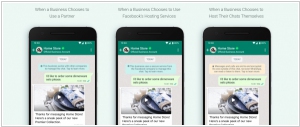
WhatsApp is introducing a new version of its WhatsApp Business API, which will now be hosted on Facebook's infrastructure in the cloud. According to the company, this shift will significantly reduce the integration setup time from weeks to just minutes. As a result, businesses can swiftly transition to WhatsApp's API platform and effectively communicate with their opted-in customers. Over the past few years, WhatsApp has been expanding its Business API to create a significant revenue stream from its otherwise free messaging service. Presently, businesses pay WhatsApp on a per-message basis, with rates varying depending on the number of messages sent and the region. Currently, numerous large enterprises, including Vodafone, Coppel, Sears Mexico, BMW, KLM Royal Dutch Airlines, Iberia Airlines, Itau Brazil, iFood, and Bank Mandiri, have already adopted the existing API (non-cloud based) to enhance their operations.
2021. Facebook is bringing end-to-end encryption to Messenger calls
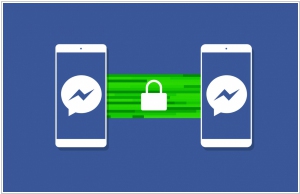
Facebook has expanded the availability of end-to-end encryption (E2EE) to include voice calls and video calls on Facebook Messenger. Since 2016, E2EE has been an option for securing text conversations on Facebook's primary messaging platform. Despite facing pressure from governmental entities to reconsider its plans for end-to-end encryption, Facebook is now extending this safeguard to encompass both voice and video calls made through Messenger. This implies that no one, including Facebook itself, can access or monitor the content of these communications. However, it's important to note that activating encryption is a voluntary action, meaning that without opting in to this new feature, your calls may still be susceptible to unauthorized data access.
2021. WhatsApp adds voice and video calling to desktop app
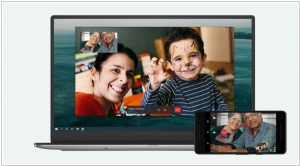
Support for voice and video calling is being introduced to the desktop app of WhatsApp for Mac and Windows. Initially, this feature will only be available for one-to-one calls, but the company plans to expand it to include group voice and video calls in the future. The video calls are designed to work seamlessly in both portrait and landscape orientation. Additionally, the desktop client will always remain on top of other windows, ensuring that video chats are never lost amidst a browser tab or a stack of open windows. WhatsApp conducted tests for this feature with a small group of desktop users last year.
2020. Facebook updates Messenger Rooms to take on Zoom
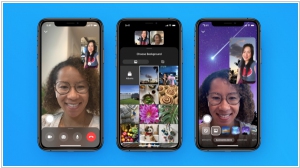
Messenger Rooms, Facebook's competitor to Zoom, is introducing new features to enhance the ease of creating and discovering Rooms, as well as personalizing the Rooms experience. The updated version of Messenger Rooms will prominently display the Rooms to which you've been invited at the top of your Chats tab in your inbox, making them easier to locate. Additionally, the option to create a new Room will be prominently placed in the Chats tab, ensuring its visibility. Various changes have been made to Rooms management as well. You can now create a Room with a default, suggested, or custom activity, set a future start date, and customize your audience selection. Furthermore, the Manage Rooms feature allows you to view, join, edit, or delete the Rooms you have created, as well as invite more people to join an existing Room.
2020. Facebook Messenger's new chat plugin for business websites allows to reach non-Facebook users
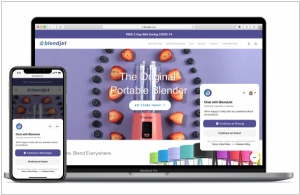
Facebook is simplifying the process for businesses to utilize its Messenger service on their respective websites. Previously, the customer chat plugin required visitors to the website to be logged into Facebook in order to engage in direct conversations with businesses. This requirement limited its adoption. However, with the updated plugin, Facebook is removing this limitation by allowing customers to interact with businesses even without being logged in. A new "continue as guest" option will be provided instead. From the business's perspective, they can continue to leverage all their existing tools to effectively manage conversations with these online users, irrespective of whether they are logged in or not.

